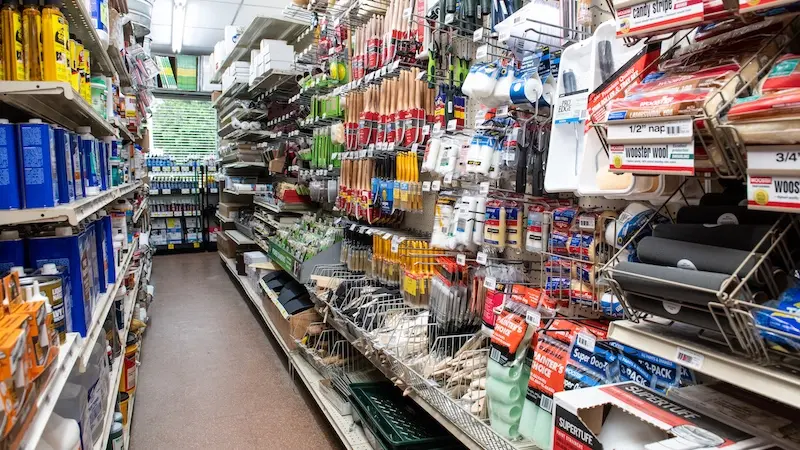How to Start a Hardware Store: Step-by-Step Guide for New Owners
- Sep 19, 2025
- 3 min read
Opening a hardware store is a rewarding venture—especially if you’re passionate about tools, building supplies, and helping contractors and homeowners get the job done. Whether you want to serve DIYers or construction professionals, starting a hardware store requires planning, investment, and the right insurance coverage.

In this guide, we’ll walk you through how to start a hardware store successfully and how Wexford Insurance can help protect your business with specialized hardware store insurance.
Why Start a Hardware Store?
Hardware stores are essential to local communities and construction industries. They supply:
Tools and equipment
Plumbing and electrical supplies
Paint and adhesives
Fasteners, fittings, and building materials
With the rise in home improvement and small contractor businesses, demand for hardware supplies is strong and growing.
Step-by-Step Guide to Starting a Hardware Store
1. Research Your Market
Start by analyzing your local area:
Who are your competitors?
What products are in demand?
Are you serving contractors, homeowners, or both?
💡 External link opportunity: How to Do Market Research – SBA.gov
2. Choose a Business Model
Decide whether you’ll:
Open an independent store
Buy into a franchise (e.g., Ace Hardware, True Value)
Operate online and/or in-store
Each model has pros and cons depending on your budget and goals.
3. Secure a Location
Look for a space with:
High foot traffic
Easy parking and delivery access
Room for inventory and displays
Consider proximity to construction zones or residential neighborhoods.
4. Stock Essential Products
Start with high-demand items:
Hand and power tools
Plumbing and electrical supplies
Paints, adhesives, and sealants
Screws, nails, bolts, and fasteners
5. Set Up Inventory and POS Systems
Use inventory management software to track stock levels, reorder products, and manage suppliers. A modern POS system helps with:
Sales tracking
Customer loyalty programs
Payment processing
💡 Read More: Best POS Systems for Retail
6. Hire Knowledgeable Staff
Your team should understand tools, materials, and customer service. Contractors and DIYers often ask for advice—your staff should be ready to help.
7. Market Your Store
Use a mix of:
Local advertising (flyers, radio, newspapers)
Social media marketing
Contractor partnerships
Market Your Hardware Store with Contractor Back Office
Visibility and presentation are key to attracting both contractors and DIY customers. Contractor Back Office helps hardware store owners build a strong digital presence through:
Improve search rankings so your store appears when customers look for tools, supplies, or repair materials.
Website Management
showcase your inventory, store hours, and promotions in a clean, professional layout.
Share product highlights, engage with your local community, and build brand recognition.
8. Get Hardware Store Insurance
Protect your investment with insurance tailored to hardware stores. At Wexford Insurance, we specialize in helping retail and contractor supply businesses get the coverage they need.
Recommended Insurance Policies:
General Liability Insurance – Covers customer injuries and property damage.
Commercial Property Insurance – Protects your building, inventory, and equipment.
Workers Compensation Insurance – Required if you hire employees.
Commercial Auto Insurance – Covers delivery vehicles and business transportation.
Equipment Insurance – Covers loss, theft, or damage to essential store equipment like POS systems, forklifts, and power tools.
Final Thoughts
Starting a hardware store is a smart move for entrepreneurs who want to serve contractors, homeowners, and DIYers. With the right location, inventory, staff, and insurance, you’ll be well-positioned to succeed in a competitive market.
📞 Ready to protect your hardware store?
Contact Wexford Insurance for a free consultation.





